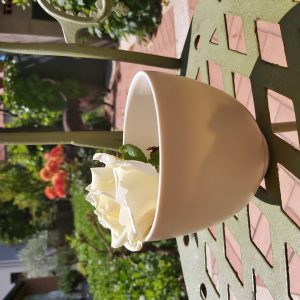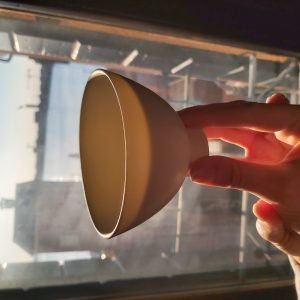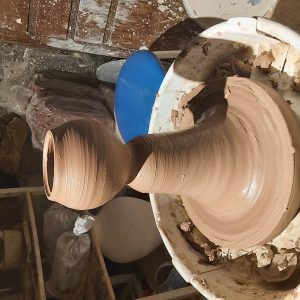Leonardo Collanega is a young ceramist from Nove and Bassano del Grappa, heir to the last potters of this area, renowned for clay working and ceramic manufacturing.
Born in 1995, Leonardo started working as a potter in 2015 following his passion for the potter-wheel, experimenting with different kinds of clays, requiring different firings, ranging from low to high temperatures. Today, in his studio Sbittarte, located in Marostica, he mainly crafts vases and pots, as well as decorative items and interior design décors, implementing various materials such as “biscuit” porcelain, bone china, stoneware, red or white clay. He also provides semi-finished products and other items on commission: for example, collaborating with Stefano Bertoncello, Leonardo contributed to the creation of his “Regaline” and “Pescecanter” jugs. In 2016, in Faenza, he was awarded the Special Prize “Mondial Tornianti” at the Technical World Championship for Young Masters, in 2020 he won the prize “Portoni Aperti” in Nove and the first potter national award “Gino Geminiani” in 2021 in Faenza.
Recommended by:
ELENA AGOSTI
Add to an itinerary







RATINGS
Extremely young wheel potter, Leonardo Collanega is heir to our territory’s centuries-old ceramic tradition: he grew up among iridescent glaze ...
Extremely young wheel potter, Leonardo Collanega is heir to our territory’s centuries-old ceramic tradition: he grew up among iridescent glaze trays belonging to his father and great decorator Stefano; he spent years observing his hands shaping clay, and really benefited from those teachings, which he now applies to his ceramics. Very young, yet, thanks to his talent, already internationally renowned in the field, Leonardo works with any kind of clay, from common red clay to precious porcelain, and he’s able to use the potter’s wheel to create tiny bowls with extremely thin edges as well as large vases recalling traditional “orcioli” (double handed jugs). In 2020 he won the Premio Portoni in Nove, entering the competition with a large white stoneware vase, hand-turned, cooked in a firewood kiln and with an ash glaze finishing, derived from his collaboration with a group of stokers led by master kiln worker Antonio Bonaldi.